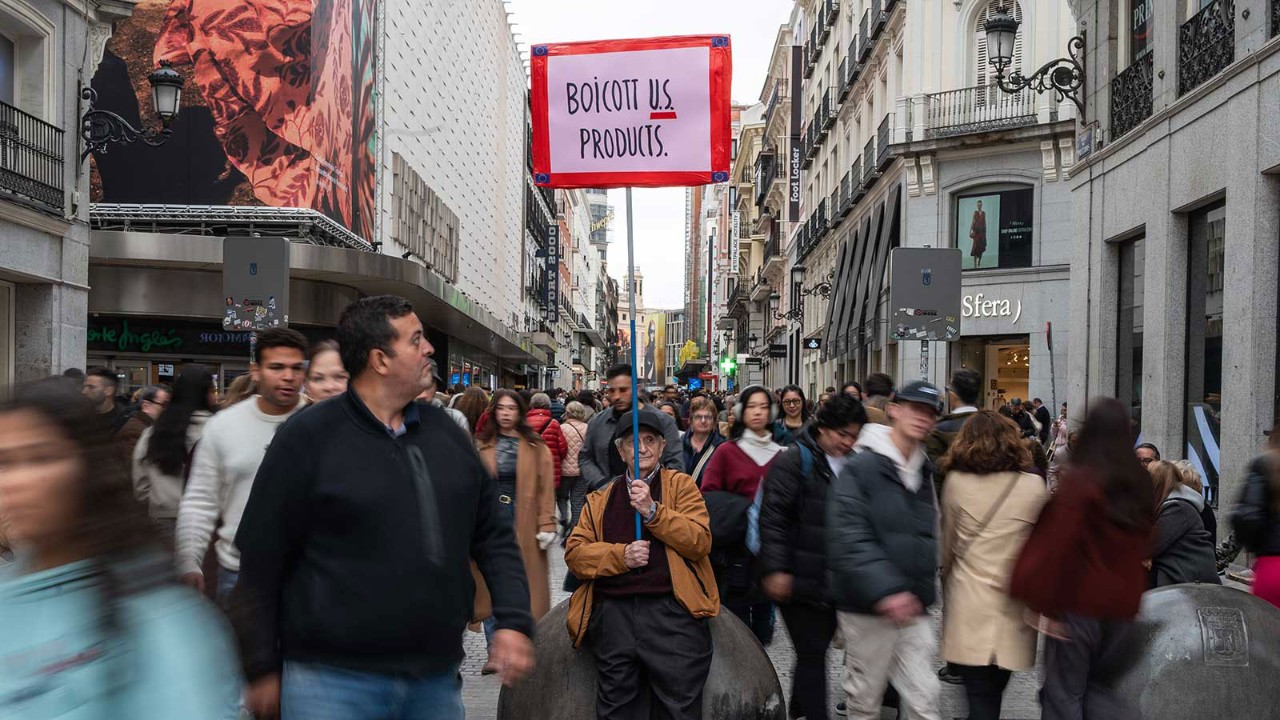
While the consensus opinion is that tariffs are bad for business, one industry that has been thriving is consultancy, a sector thickly populated by accountants able to dispense expert advice on how to cope with protectionist barriers. And with President Trump’s administration switching gears and direction on tariffs on a near-daily basis, the advice pipeline for trading companies worldwide is flowing fast.
A Deloitte paper released in April urges businesses to undertake corporate risk assessments that weigh ‘the potential impacts of tariffs and any trade tensions on their supply chain’, including possible retaliatory foreign action. It adds: ‘Early identification of components and products with higher volumes and values that may be subject to tariffs can help prioritise and focus mitigation strategies.’
Deloitte suggests stocking up on imports before tariffs hit, renegotiating contracts to incorporate purchase price flexibility during trade policy shifts, and switching supply chains to jurisdictions with lower labour costs and tariff exposure.
‘We are getting more calls than I’ve ever seen in my 25-year career’
Meanwhile EY advises reviewing possible duty mitigation via potential changes in customs valuations to deliver lower landed tax rates for imports. One move could be to split product and non-product costs, as the latter are not usually tariffed. EY advises assessing the suitability of special US trade programmes, such as bonded warehouses and foreign trade zones, and using the special classification provisions in Chapter 98 of the US harmonised tariff schedule to reduce tariff exposure.
And at PwC, Chicago-based principal Chris Desmond says that the potential cost of add-on and reciprocal tariffs to US importers, even with the current 90-day pause, will hit US$700bn this year. ‘There are some sectors – like luxury clothing and particularly the semiconductor market, which was targeted in Trump’s original tariffs in 2018 – that are accustomed to tariffs,’ Desmond says. But he adds: ‘It’s a big hit for certain industries that will go from zero tariffs to 25% or 50% tariffs. That’s a big change which companies did not anticipate.’
Pharma hit
A PwC analysis has said the US pharmaceutical, life sciences and medical devices sector is particularly vulnerable, with annual duties on imports poised to vault from a modest US$500m to over US$60bn. ‘That’s billion with a B,’ Desmond says. ‘We are getting more calls than I’ve ever seen in my 25-year career doing consulting in global trade.’
He advises companies to bring together product divisions, including the ‘tax team, transfer pricing team and customs team’, to make sure they are all working in concert to reduce import costs.
Lower customs values
Colin Wilhelm, manager of tax legislative affairs at Grant Thornton’s Washington national tax office, says the firm is advising clients to plan and be agile in responding to the policy shifts and associated costs. Tax planning, supply chain, business strategy, operations, internal controls and auditing should all be reviewed.
‘There’s a real possibility that services could be targeted as well’
One strategy is to consider lowering customs values by, for example, ‘unbundling certain royalties or services from the product price so they are not tariffed’ – for instance, marketing and branding. Grant Thornton adds that such strategies ‘must be consistent with transfer pricing policies and be documented to avoid customs penalties or tax adjustment’.
Wilhelm warns that companies need to take care with such creative approaches. ‘There’s a real possibility that services could start to be targeted as well in escalatory actions,’ he explains. ‘The EU has already floated the possibility of a bloc-wide digital advertising tariff, for instance, if talks with the Trump administration don’t produce a long-term agreement.’
Highly vulnerable
Accounting networks have also been guiding businesses in countries targeted by Trump tariffs which may face special vulnerabilities. They include Canada, which has suffered from closures in its export-oriented auto sector because of US tariffs of up to 25% on automobiles, depending on the level of American materials and components in assembled vehicles. KPMG, for example, advises Canadian corporations to follow the federal government’s ‘tariff remission process’ and apply for tariff recovery on goods imported from the US that cannot be sourced in Canada.
‘Keep calm and seek opportunities amid these new challenges’
There are also intense concerns in Mexico, which in 2024 sent 83.1% of its exports to the US. Ari Ben Saks, associate partner at EY Mexico, advises companies to ‘keep calm and seek opportunities amid these new geopolitical challenges’. While monitoring US trade policies, and responses from partners such as China and the EU, Mexican companies should ‘review and fully understand their current operating model, work in different scenarios and evaluate options and mitigation strategies’, he says.
European SMEs
In Europe, Paul Gisby, senior director for accounting federation Accountancy Europe, stresses that preparation only goes so far. ‘Ripple effects will be particularly impactful on SMEs worldwide, many of whom already struggle in a challenging business climate and may not be as well placed as larger entities to prepare,’ he says.
Gisby advises businesses to work with their accountants to build resilience through measures such as mapping and readjusting supply chains, scaling back production for some parts and stock. For European companies, that may mean ‘reconsidering suppliers and clients in the US and more broadly outside of the EU single market, and identifying alternatives’.
‘Early payment discounts may be essential to build up financial reserves quickly’
Companies need to review their financial reserves for restructuring and reinvestments. ‘Ideally, financial reserves would amount to up to three times the monthly expenses of the business,’ Gisby says. SMEs could offer debtors discounts for early payment, ‘which may be essential for building up financial reserves quickly’. He advises against new debt or credit, though, ‘unless it is part of a turnaround plan that is reasonably likely to lead to a more resilient business’.
In that regard, moving from cash to accrual accounting, to gain a more complete view of a business, aiding management of assets and liabilities, could be useful during this time of turmoil, he says, especially for larger SMEs. He also recommends reviewing potential insurance needs for assets, and credit coverage for key customers. His other suggestions include opening communications with staff about tariff-related risks, avoiding laying offs (offering pay cuts or temporary leave instead) to retain loyalty and talent, and considering last-resort insolvency options that favour debt reorganisation over full liquidation.



